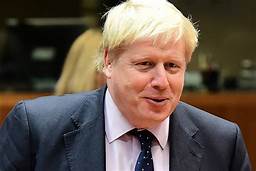InternationalNews
Fears for Brexit deal as talks near deadline

EU diplomats in Brussels wake up this morning with a sore head. The government has thrown a number of political grenades across the Channel over the space of a few hours.
First: a defiant-sounding interview with David Frost, the UK chief negotiator in the troubled trade talks with the EU. Next came a leak about government plans to introduce domestic legislation which would partially undermine the Brexit divorce deal, the Withdrawal Agreement, signed last year with the EU. Also affecting the Irish Protocol, designed at the time by Brussels and the UK to avoid a hard border on the island of Ireland.
Finally, Prime Minister Boris Johnson is to say on Monday that if no trade deal is agreed by mid-October, there will be no trade deal at all with the EU. And that – by the way – a no-deal scenario would actually be good for the UK, giving it full control over its “laws, rules and fishing waters”.
EU reaction? Not at all happy.
Bang on cue, irritated European diplomatic sources described the Frost interview as sabre rattling and “unsurprising muscle flexing” ahead of the last tough rounds of trade negotiations with the EU.
As regards the domestic legislation affecting the Irish Protocol (the precise details of which have not yet been revealed), Ireland’s Foreign Minister Simon Coveney tweeted that would be “a very unwise way for the government to proceed”.
While a high level EU diplomat from a country traditionally close to the UK slammed the planned legislation as, not only a trust or credibility issue, but “something that could lead to the unravelling of the already fraught EU-UK trade negotiations”.
It was a self-defeating move by the Johnson government, he said.
So self-defeating, in EU eyes, that I have now begun to hear musings amongst Brussels contacts that maybe they were not the government’s main target audience after all.
Because, say EU figures, if the Frost interview, the legislation leak and the prime minister’s words were all designed as a negotiating tactic, to put pressure on the EU, then it was a terrible tactic, they insist, as it simply serves to “raise European hackles”.
Some in the EU think the government’s intended audience was actually ardent Brexiters. More specifically: backbench Tory MP’s, already annoyed with the government’s handling of domestic issues, like the exam chaos this summer, and worried the prime minister may be about to agree a compromise deal with the EU.
Could this mean, wonders the EU, that Boris Johnson is throwing what one Twitter commentator described as “red meat” to the backbench Brexiters – talking up the no-deal scenario and giving Brussels ultimatums – because he is actually preparing to “get pragmatic” and make concessions in trade talks?
Or is the opposite true?
Is the prime minister preparing the ground to declare that no deal can be reached and that the UK and EU will instead trade on World Trade Organization terms – with the accompanying tariffs to pay – come the new year?
Brussels diplomats say they are willing to make concessions, including on key issues like state aid and fishing but that the UK must do the same, including – and this is as much a bottom line for the EU as it is hard to swallow for the UK – signing up to safeguards for the EU’s single market.
The prime minister faces conflicting domestic pressures.
Pushing him towards a compromise deal: cost of no deal for UK business, Scottish elections loom and no deal will likely boost the fortunes of the anti-Brexit SNP who are calling for another referendum on Scottish independence, manufacturing towns amongst new Conservative “red wall” seats would suffer from no-deal paperwork and disruption to supply chains.
Pushing him away from such a deal: strong opposition from Brexiter Conservative MPs, concerns over ceding post-Brexit sovereignty and remaining tied to Brussels apron strings.
The EU is not at all sure what Boris Johnson will decide. But it is convinced of one thing: deal or no deal, the decision ultimately lies in Downing Street, not here in Brussels.
If there is a deal, it is highly unlikely to be struck by mid-October, as the prime minister wishes.
The EU thinks November is a more realistic bet. It still believes a deal can be done and that Boris Johnson would prefer a deal over no deal. But time is tight, tempers are frayed and Covid-19 continues to distract leaders across Europe.
At least one emergency Brexit summit is likely before the autumn is over.
Source:Fiilafmonline/BBC


